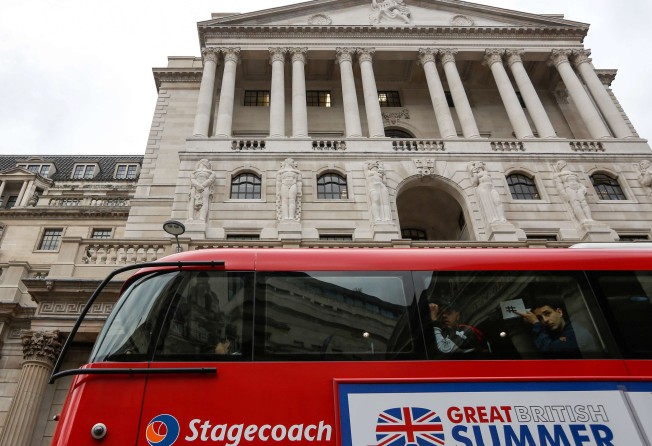Brexit could force banks to consider moving UK operations
Should Britain vote to leave the European Union, financial services job losses seem likely, say analysts

Banks doing business in the United Kingdom are making contingency plans should the UK leave the European Union, with many considering moving some operations elsewhere in the trading area.
“In the past three to four months, there has been a large uptick in Brexit consciousness from banks,” said James Coiley, finance partner at law firm Ashurst.
“Towards the start of the year, just a few institutions appeared to be on top of things, but now the majority has done a significant amount to prepare for the possibility of the UK leaving the EU.”
On Thursday, the British population will vote on whether or not to remain in the EU.
The UK financial sector accounts for approximately a quarter of all EU financial services income, and nearly 40 per cent of European assets under management are managed from the UK.
As well as banks headquartered in the UK, a large number of non-EU financial institutions use the country as a hub to access clients and markets across the EU, while many EU firms also maintain branch presences in London.
“The UK’s status as a financial services hub relies to some extent on having access to European markets,” said a recent report from PwC.
Banks and investment companies authorised in one European Economic Area state are entitled to provide services to clients in other EEA states without further authorisation requirements, under the so-called ‘passporting regime’.
The EEA is a free trade area within which there is free movement of people, consisting of the EU as well as Iceland, Liechtenstein and Norway.
Michael Gove, one of the most senior campaigners for Brexit, and the current UK justice minister, has said that if Britain leaves the EU, the country would leave the EEA as well.
“Those many institutions that use the UK as an entry point into the EU would have to find a plan B, if the UK left the EU and failed to negotiate favourable access arrangements,” said Coiley.
“Dublin would be a natural landing point for many banks because of the language, time zone, and a regulator that is fairly financial-services-friendly,” he added.
Such moves would have an impact on the numbers employed by overseas banks operating in the UK.
Andrew Breach, head of executive search firm Page Executive’s banking and financial services practise said: “One of the most striking recent developments in the referendum campaign was the speech from Jamie Dimon [JP Morgan chief executive] in early June in which he warned that the bank might lose up to 4,000 jobs in its UK operations if the UK were to leave the EU.”
It is not just banks headquartered outside the EU who are considering redundancies in their UK operations.
Deutsche Bank AG Chief Executive Officer John Cryan, said in May that the German bank would move some trading activities from London should the UK decide to exit the European Union.
It would be “counterintuitive” to trade euro zone products such as Italian government bonds out of London, if Britain was no longer part of the EU, Cryan told investors at a conference in New York, Bloomberg reported.

At present, neither HSBC nor Deutsche Bank is speaking publically about its Brexit contingency plans.
“If the UK leaves the EU, London will continue to be a financial services centre, but it will slip down in global significance,” said Breach .
“It will be better to carry out some services from mainland Europe, though for some it will remain better from the UK.”
Breach said the precise breakdown of which services could best be conducted where, would depend on the arrangements negotiated after the UK had left the EU.
“The first impact on banks will be on the trading and markets side,” said Ashurst’s Coiley. “The markets are going to react in one way or another.”
A report from DBS said if British voters decide to leave the EU, “markets should expect a perfect storm”.
“UK equities will likely plunge, taking stock markets elsewhere in the world down with them. The pound and the euro will also dive against the US dollar,” it said.
This will mean that for bankers on the trading floor, the first impact of a Brexit vote may well be more work, in London and elsewhere, rather than less.
One banker in the UK who asked to remain anonymous told the SCMP that traders at a number of banks would remain late on Thursday night to trade in the US session in response to the arriving referendum results.